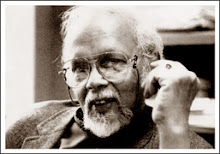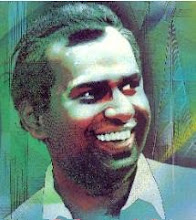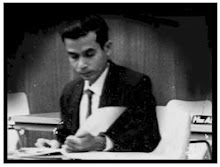Date: 25/07/2010
Source: Sunday Times
A Review of the inaugural staging of ‘The Commode’, a play written by Dhanuka Bandara and co-directed with Rashmi Fernando at the E.O.E Pereira Theatre, recently.

Despite the fact that the playwright thinks a commode “is not so novel an idea” as art, it certainly did put things in perspective for those who were at the E.O.E Pereira Theatre last Sunday afternoon. ‘The Commode’ brought political and cultural theory literally under the light. Dhanuka Bandara’s play was a brave attempt at voicing out opinion; radical opinion too, at that. It raised startling questions in startling ways and dared to bring on stage, into public, the youthful resistance of what Dhanuka himself calls “political virginity.”
The play, being intentionally anti-Aristotelian (and thereby anti-unity) had no over-reaching plot, but what the author was saying was consistently and sharply conveyed during the run. “Being a theory freak, I believe that theory should translate itself into physical political action, thus salvaging itself from the academic ennui of universities” Dhanuka says. “To my mind, sans its esoteric jargon and other numerous embellishments, theory at a certain level is rather commonsensical and has a radical potentiality. I wanted to capitalize on that potentiality.” To aid him in this not-so-novel yet immensely laudable venture was a cast that absolutely must be commended on a passionate and engaging job well done.
Crystal Baines and Tanya Samarasinghe especially stood out as remarkable performers. Crystal’s subtle and sensitive work with the role of the undergrad girlfriend seemed effortless – a near-perfect performance unfortunately unhinged by a lack of projection which made her almost inaudible. Tanya played the relentless protestor with such vigour and vivacity that her performance with Ashan Weerasinghe was probably the most dramatically engaging during the whole play.
The first scene needed more interaction and communication between the players to bring to life the subtle wit underlying the text, but the lovers and the protestors really ‘gelled’. Rashimi Fernando’s awesome direction in the slow-motion fight-scene enhanced by artificial lighting complemented the acute body-control and coordination Tanya and Ashan displayed. A different kind of power failed not to move most human beings in the audience during a very not-corny but nevertheless emotionally powerful ‘love’ scene between Crystal and Thilina Wickramaarachchi, who though endearing with his good looks did not always seem comfortable in his role. “It was just awesome, I just wanted to hug somebody after that” said one enthusiastic spectator, and “I almost wanted to clap at the end of that scene” said another. The boy chews the unlit cigarette in one corner, the girl plays with the lighter in the other and soft music plays in the background... not corny did I say? My bad, but it was still very moving.
Kudos to Ajith Dharmasiri on a brilliant score of alternative tracks that gave the audience the gist of each scene; but the vocalists did not pay due reverence to the music, methought.
A lot of thoughtful work had evidently gone into the directing of the play. From the breaking of the fourth wall to colour-coded characters, symbolisms ruled the stage – sometimes to the point of overkill as in the use of audience area which in the final scene took away from the intensity of the action. The script was bilingual, and as Dr. Carmen Wickramagamage of the Department of English at the University of Peradeniya commented, very significant in its assertion of “a truly bilingual intelligentia emerging from the English departments in Sri Lanka” (Dhanuka as well as most of the cast being English Honours students), which defies the recognition of these departments as the ‘colonizer’. Stylistically, the script displayed the writer’s varied capabilities which were probably not complemented much by the players. Nevertheless the wit and startling candour failed not to duly shock the audience out of its comfort zones!
The one complaint, if it could be called one, was the content of the play itself. “The play created an in-group and an out-group I think” commented one spectator, “the whole thing was a bit too theory-laden; and exclusive” said another. So essentially, a question was raised about the audience of the play, and many calls made for a second staging in a different environment.
The thinking behind the work, the dramatic genius and the engagement and commitment to issues of the classroom were awe-inspiring to say the least. “It left a very powerful impact on me” said Dr. Wickramagamage, “and I felt very very proud that there are people like Dhanuka in the English department.” It truly is inspiring to see people of our generation step out into the world with creativity that is something more than a ranting blog-roll, and address the issues that body-slam us and leave before we know it.
How many of us are going to now take pen and paper and dare to do something different with it?



































No comments:
Post a Comment